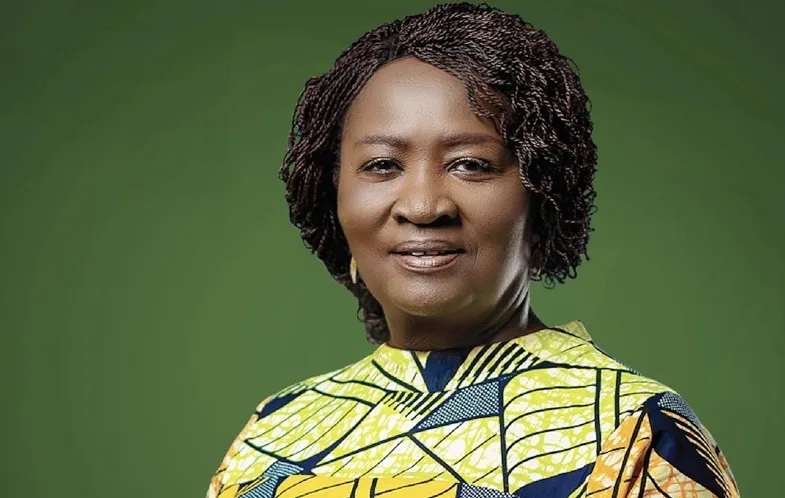NPP Activist Mohammed Zakou Granted Bail in False Information Case About VP Opoku-Agyemang
Court Sets GH¢100,000 Bail with Conditions Following Controversial Social Media Post
In a case highlighting the growing tension between social media expression and legal boundaries in Ghana’s digital age, the Achimota Circuit Court has granted bail to Mohammed Zakou, a New Patriotic Party (NPP) activist who found himself at the center of controversy after posting what authorities deemed false information regarding Vice President Prof. Naana Jane Opoku-Agyemang’s health status.
The Controversial Post That Led to Legal Action
Zakou was arrested following a Facebook post that read “Rest Well Her Excellency,” accompanied by crying emojis. Authorities interpreted this message as falsely claiming the Vice President had passed away, leading to charges of communicating false news—a serious offense under Ghana’s electronic communications regulations.
During court proceedings, Zakou admitted to publishing the post but offered a different interpretation of his intentions, stating that the message was meant as a gesture of goodwill toward the Vice President, who has reportedly been unwell.
Legal Proceedings and Bail Conditions
The Defense’s Position
Zakou’s legal representation, headed by prominent attorney Gary Nimako Marfo, presented a bail application during Monday’s court session. The defense team argued that their client posed no flight risk and would fully comply with the court’s requirements throughout the trial process.
The state prosecution team, while not opposing the bail application outright, requested that the court impose conditions to ensure Zakou’s continued participation in the trial proceedings.
Court’s Decision
After hearing arguments from both sides, the presiding judge granted bail with the following conditions:
- Bail set at GH¢100,000 (approximately $7,200 USD)
- Two sureties required
- Mandatory weekly reporting to the case investigator
The judge has scheduled the case for a case management conference on May 12, 2025, when both prosecution and defense teams will outline their evidence and arguments for the upcoming trial.
Implications of Social Media Use in Ghana’s Political Landscape
Digital Communication and Legal Responsibility
This case highlights the increasingly significant intersection between social media communication and legal accountability in Ghana’s evolving digital landscape. As social media platforms continue to serve as primary channels for political communication, the boundaries of acceptable expression remain contested.
According to digital rights experts at the Media Foundation for West Africa, cases like Zakou’s raise important questions about the balance between free expression and responsibility in online spaces.
“The digital age has transformed how political communication happens, but existing laws regarding false information still apply,” notes a digital rights specialist at the Ghana Technology Chamber. “Citizens and particularly political actors need to exercise caution in what they post, especially concerning public officials.”
Political Dimensions
The case takes on additional significance given Ghana’s current political climate. Prof. Naana Jane Opoku-Agyemang, an accomplished academic and former Education Minister, became Ghana’s first female Vice President following the 2024 elections, making her health and wellbeing matters of significant public interest.
Political analysts from the Centre for Democratic Development-Ghana suggest that the heightened sensitivity around this case reflects the polarized nature of Ghana’s political environment, where social media posts by party activists can quickly gain national attention.
Legal Framework Surrounding False Information
Understanding Ghana’s Communication Laws
Ghana’s laws regarding false information, particularly the Electronic Communications Act and provisions within the Criminal Code, prohibit the publication of false news likely to cause fear, alarm, or disrupt public peace.
Legal experts at the Faculty of Law at the University of Ghana note that convictions under these provisions can result in substantial fines or imprisonment, highlighting the seriousness with which Ghanaian law treats such cases.
Recent Precedents
This case follows several similar incidents where Ghanaians have faced legal consequences for social media posts deemed harmful or false. In recent years, the government has intensified efforts to combat misinformation, particularly regarding public officials and national security matters.
Public Reaction and Media Commentary
The case has generated significant discussion across Ghanaian media and public forums. Some commentators view the prosecution as necessary to combat the spread of potentially harmful misinformation, while others express concern about potential chilling effects on free expression.
“There’s an important balance to strike between preventing harmful misinformation and ensuring citizens can freely express political opinions,” observes a media ethics professor at the Ghana Institute of Journalism.



